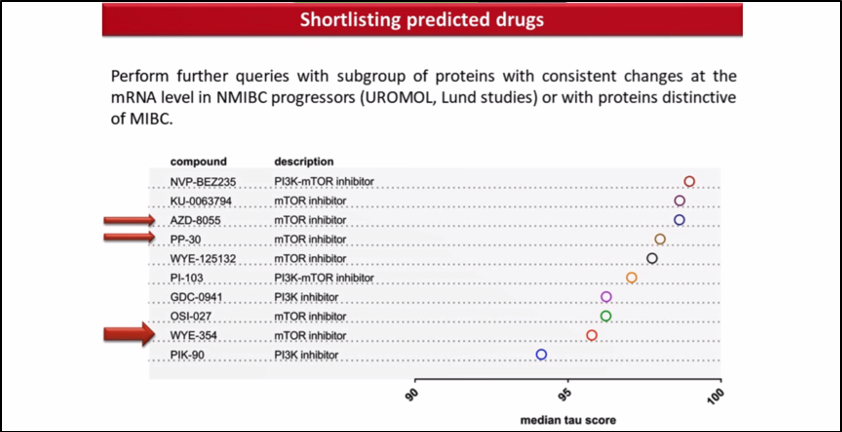The candidate mTOR inhibitor WYE-354 was then investigated in bladder cancer cell lines in vitro, which resulted in decreased proliferation and colony formation. The investigators report their high-throughput methodology for candidate drug identification through proteomic signatures. These data have implications in the era of personalized medicine along the spectrum of stage, grade, and variant histologic differentiation of bladder cancer.

Presented by: Marika Mokou, Ph.D., Biomedical Research Foundation Academy, Athens, Greece
Written by: Dr. Patrick Hensley, Urologic Oncology Fellow at MD Anderson Cancer Center, Twitter: @pjhensley11, with Ashish Kamat, MD, MBBS, President of The International Bladder Cancer Network (IBCN), The International Bladder Cancer Group (IBCG), and Professor of the Department of Urology, Division of Surgery, The University of Texas MD Anderson Cancer Center, Houston, Texas, Twitter: @UroDocAsh, at the International Bladder Cancer Network (IBCN) Annual Meeting, #IBCN2020, October 17, 2020.


